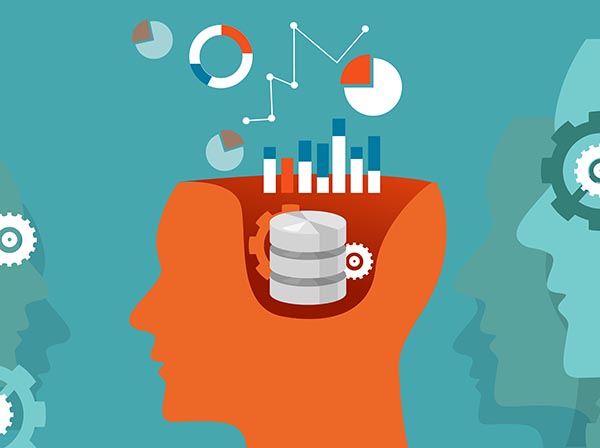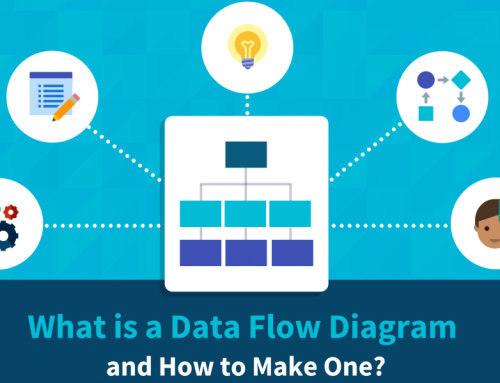Data Engineers: What Is A Data Engineer & What Do They Do?
Data engineering is a very popular job right now, and you’ve probably heard of it. But do you know what data engineers do in companies? What skills and responsibilities should they have? If not, read on. In this article, we introduce data engineers and their responsibilities and skills.

Data Engineers
What do data engineers do in a company?
They work in a variety of settings to build systems that collect, manage, and transform raw data into usable information for interpretation by data scientists and business analysts. Their ultimate goal is to make data accessible so that organizations can use it to evaluate and optimize their performance.
What is the difference between a data analyst and a data engineer?
Data analysts analyze datasets to gather knowledge and insights. Data engineers build systems that collect, validate, and prepare high-quality data. Data engineers collect and prepare data, and data analysts use data to drive better business decisions.
What are the roles that data engineers need to play?
They focus on collecting and preparing data for use by data analysts. They assume the following three main roles:
- Generalists. Data engineers of general focus typically work in small teams for end-to-end data collection, reception, and processing. They may have more skills than most data engineers, but less knowledge of system architecture. Data scientists who want to be data engineers are well suited for generalist roles. A generalist data engineer might create a dashboard for a small metropolitan food delivery service that shows daily deliveries for the past month and predicts deliveries for the next month.
- Pipeline-centric engineers. These data engineers usually work in mid-sized data analysis teams and in more complex data science projects that span distributed systems. Large and medium-sized companies are more likely to need this role. A regional food delivery company might undertake a pipeline-centric project to create a tool for data scientists and analysts to search metadata for information about deliveries. They might look at distance driven and drive time required for deliveries in the past month, then use that data in a predictive algorithm to see what it means for the company’s future business.
- Database-centric engineers. Implementing, maintaining, and populating the analytical database is the task of these data engineers. This role is typically found in large companies with data distributed across multiple databases. Engineers use pipes, tune databases for efficient analysis, and create table schemas using extract, Transform, load (ETL) methods. ETL is the process of copying data from multiple sources to a single target system. In a large, multi-state or national food distribution service, a database-centric project would be to design an analytical database. In addition to creating the database, the data engineer writes code to fetch data from locations collected in the main application database into the analysis database.
What are the responsibilities of a data engineer?
Data engineers often work alongside data scientists as part of an analysis team. Engineers provide data in usable formats to data scientists, who run queries and algorithms against information from predictive analytics, machine learning, and data mining applications. Data engineers also provide summary data to business executives, analysts, and other end users so they can analyze it and apply the results to improve business operations.
Data engineers handle structured and unstructured data. Structured data is information which can be organized into a formatted repository, such as a database. Unstructured data, such as text, images, audio, and video files, does not fit traditional data models. Data engineers must understand the data schema and the different ways in which applications handle the two data types. Various big data technologies, such as open source data ingestion and processing frameworks, are also part of the data Engineer toolkit.
Data Engineer Skill Set
Data engineers need to be proficient in C#, Java, Python, R, Ruby, Scala, and SQL programming languages. Python, R, and SQL are the three most important languages used by data engineers.
Engineers need a good understanding of ETL tools and REST-oriented APIs to create and manage data integration jobs. These skills also help to provide data analysts and business users with simplified access to prepared data sets. Data engineers must fully understand data warehouses and data lakes and how they work. For instance, Hadoop data lakes that offload the processing and storage work of established enterprise data warehouses support the big data analytics work done by data engineers.
Also, data engineers must have a good understanding of NoSQL databases and Apache Spark systems, which are becoming common components of data workflows. they should also know about relational database systems, such as MySQL and PostgreSQL. Another focus is the Lambda architecture, which supports a unified data pipeline for batch and real-time processing.
Business intelligence (BI) platforms and their configuration capabilities are another important concern for data engineers. Through the BI platform, they can establish connections between data warehouses, data lakes, and other data sources. Engineers must know how to use the interactive dashboards used by BI platforms.
While machine learning is more of a data scientist or machine learning engineer’s skill set, a data engineer must also understand it in order to be able to prepare data for a machine learning platform. They should know how to deploy machine learning algorithms and gain insights from them.
Finally, it is important to understand unix-based operating systems (OS). Unix, Solaris, and Linux provide functionality and root access that other operating systems, such as Mac OS and Windows, do not. They give the user more control over the operating system, which is useful for data engineers.
Conclusion
Thank you for reading our article and we hope it can help you to have a better understanding of data engineers and their skills and responsibility. If you want to know more about date engineers or other information related to it, we would like to advise you to visit Gudu SQLFlow for more information! Thanks again! (Published by on Apr 22, 2022)
One Comment
Leave A Comment
If you enjoy reading this, then, please explore our other articles below:




[…] scientists often work with data engineers on the same projects for organizations. Then good communication channels are essential to eliminate […]